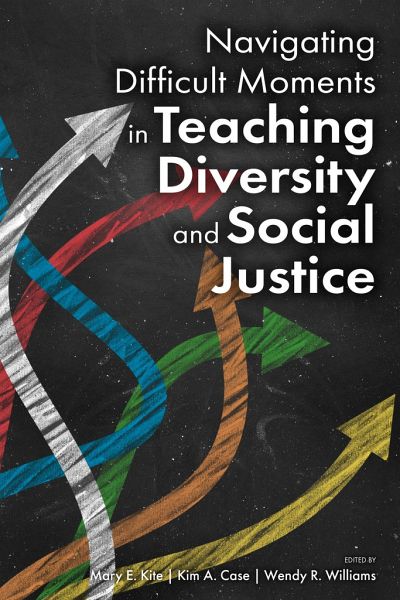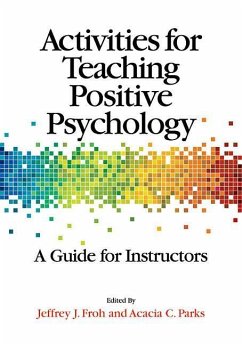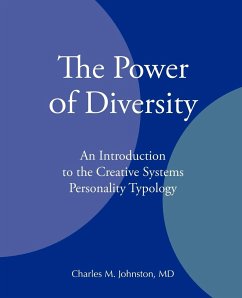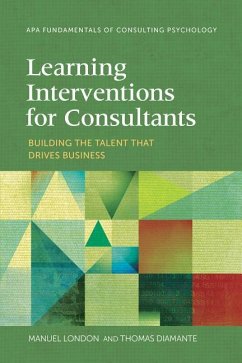
Navigating Difficult Moments in Teaching Diversity and Social Justice
Versandkostenfrei!
Versandfertig in über 4 Wochen

PAYBACK Punkte
23 °P sammeln!




This essential resource helps educators tackle the most common and challenging dilemmas that arise in today’s classroom—such as diversity, privilege, and intersectionality.
Mary E. Kite, PhD, received her BA, MS, and PhD from Purdue University and is now Professor of Social Psychology at Ball State University. Strongly committed to psychology education at all levels, she has held a number of leadership roles for the Teaching of Psychology (STP, APA Division 2), including past president. Her leadership in the Midwestern Psychological Association also includes serving as past president. She holds Fellow status in APA Divisions 2, 8, 9, 35, amp 44, the Association for Psychological Science, and the Midwestern Psychological Association. She maintains an active research program in the area of stereotyping and prejudice, including cöauthoring The Psychology of Prejudice and Discrimination (3e) with Bernard Whitley, Jr. Whitley and Kite also cöauthored Principles of Research in Behavioral Science (4e). Recognitions include the Charles L. Brewer Award for Distinguished Teaching in Psychology from the American Psychological Foundation (2 4) and a Presidential Citation from the Society for the Teaching of Psychology (2 ). Kim A. Case, PhD, is the Director of Faculty Success at Virginia Commonwealth University. As Director, she develops and implements faculty mentoring programs, supports faculty career development and scholarship productivity, and oversees the Center for Teaching and Learning Excellence. Her mixed¿methods research examines ally behavior, interventions to increase understanding of intersectionality and privilege, prejudice reduction, and creation of inclusive workplace and education settings. She is author of Deconstructing Privilege: Allies in the Classroom (2 3) and Intersectional Pedagogy: Complicating Identity and Social Justice (2 7), both published by Routledge. Her scholarship, blog, and teaching resources are available at www.drkimcase.com. The Society for the Psychological Study of Social Issues previously honored Dr. Case with the Outstanding Teaching and Mentoring Award and the Innovative Teaching Award. The Society for the Teaching of Psychology named her as the 2 8 Robert S. Daniel Excellence in Teaching Awardee for her nationally recognized pedagogical advancements. Wendy R. Williams, PhD, is a Professor of Psychology and Women's Studies at Berea College. She received her PhD in Social Psychology from the University of California, Santa Cruz in 2 5. She was previously an Associate Professor and Director of Women's Studies at Marshall University. Her teaching and research interests focus on stigma and prejudice, specifically around issues of social class, including documenting the lived experiences of low¿income and working¿class Americans, as well as examining the personal and political consequences of how low¿income people are perceived. She regularly teaches courses both in the core of the psychology major (e.g., Introduction to Psychology, Statistics, Research Methods, Social Psychology) and in her areas of research interest (e.g., psychology of women amp gender, psychology of poverty amp social class), and she incorporates service¿learning and other experiential learning pedagogies into her teaching. She has published fourteen papers, including a book chapter on how experiential learning can raise awareness of social class privilege. In addition, she has won awards for her research, teaching, service, mentoring, and leadership.,
Produktdetails
- Verlag: American Psychological Association (APA)
- Seitenzahl: 274
- Erscheinungstermin: 10. November 2020
- Englisch
- Abmessung: 228mm x 153mm x 25mm
- Gewicht: 422g
- ISBN-13: 9781433832932
- ISBN-10: 1433832933
- Artikelnr.: 59084429
Herstellerkennzeichnung
Libri GmbH
Europaallee 1
36244 Bad Hersfeld
gpsr@libri.de
Für dieses Produkt wurde noch keine Bewertung abgegeben. Wir würden uns sehr freuen, wenn du die erste Bewertung schreibst!
Eine Bewertung schreiben
Eine Bewertung schreiben
Andere Kunden interessierten sich für











